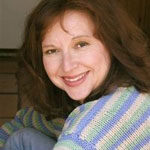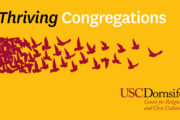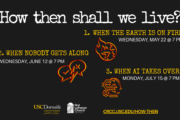This piece was originally published by Religion News Service.
As a student of American evangelicalism, I am frequently asked how Christians can support Donald Trump. I stop myself from going into lecture mode. Most people want a sound bite, not a disquisition.
So here’s the short answer: Ever since 1980, when Ronald Reagan told a Dallas gathering of 15,000 evangelicals, “you can’t endorse me … but I want you to know that I endorse you,” white evangelicals have voted for Republicans, who mostly promise to enact their agenda.
Mostly they’ve been disappointed. In November 2016, when Trump won election to the White House, abortion was still legal, gay couples had the right to marry, government regulations inhibited the free market and the U.S. embassy to Israel remained in Tel Aviv.
Trump promised to change all that.
Despite his personal shortcomings, evangelicals believed him. He selected a solid Christian as his running mate, and his track record as a businessman proved he got things done.
God uses imperfect messengers, evangelicals reasoned, and if King David — an adulterer who arranged to have his partner’s husband killed — could still accomplish great good, why not the 45th president?
So it was a realpolitik calculation that drove so many white evangelicals to the Trump-Pence ticket. It was also stoked by economic uncertainty, cultural anxiety and a sense of social marginalization that festered through the Obama years. They wanted an affirmation of their status, and Trump offered one.
But here is another answer to the question of why evangelicals support Trump: They don’t, or at least not all of them.
While conservative white evangelicals are a significant voting bloc and, as such, command cultural cachet, they’re not monolithic. Millions of evangelicals, notably those who aren’t white, didn’t support Trump.
The evangelical world is more complex than news coverage of Jerry Falwell Jr. and Franklin Graham would suggest. A handful of white conservative leaders, even if they don’t all agree, isn’t representative of American evangelicalism’s breadth.
That’s why a group of scholars, including evangelicals, former evangelicals and non-evangelicals who are black, white and brown, met regularly this fall to discuss and develop a typology that would describe the complexity of American evangelicalism. Those discussions eventually led my colleagues and me at the Center for Religion and Civic Culture at the University of Southern California to create a short guide on the varieties of American evangelicalism.
Our goal was to educate reporters for the 2018 midterm election — where white evangelicals again voted overwhelmingly Republican — and beyond.
We hope the guide will deepen Americans’ understanding of religious difference as well as religion and politics. We also hope the guide is a conversation starter: Who’s missing and how can we improve the schema?
The guide breaks evangelicals into five groups: Trump-vangelicals, Neo-Fundamentalist Evangelicals, iVangelicals, Kingdom Christians and Peace and Justice Evangelicals.
We used three sorting criteria.
First, each group shares a basic agreement on evangelical theology. Second, they each understand themselves as existing within the larger tradition of American evangelicalism, whether or not they refer to themselves, their churches and other organizations as “evangelical.”
Third, their theology motivates how they act in the world, including social and political activities, and their attitudes toward people who do not share their faith.
Trump-vangelicals are the most visible inheritors of the religious right’s mission to make America a Christian nation. The majority of this group is white, but some Latinos, Asians and African-Americans also belong. Many are not just concerned with electoral politics but also see their work as preparation for the Second Coming. Members stay connected through educational and media networks, including Fox News, and look to men like James Dobson, John Hagee and Franklin Graham for leadership.
Neo-Fundamentalist Evangelicals share the same worldview as Trump-vangelicals but cite moral and theological reasons for not supporting the president. However, they appreciate Trump’s making good on their agenda, and many voted for him, some holding their noses.
Unlike the Trump-vangelicals, neo-fundamentalists strive to be politically pure, motivated only by Christianity’s teachings. Notables include Russell Moore of the Southern Baptist Convention and Tony Evans of the Oak Cliff Bible Fellowship in Dallas.
iVangelicals, the largest division of American evangelicals, belong to megachurches. Mostly white, they also include Latinos, Asians and African-Americans. Though socially conservative, they are more concerned with church life than politics. Social change, they say, comes from individual conversion: people need to be saved before political structures change. Joel Osteen of Lakewood Church in Houston represents this group, as do T.D. Jakes of the Potter’s House Church of Dallas and the leadership of Hillsong.
Kingdom Christians are the most racially and ethnically diverse of the groups. Churches tend to be urban and hyper-local, and members are active in their communities, working for grassroots changes that mitigate human suffering. Because of their local orientation, few leaders are nationally known.
Peace and Justice Evangelicals make up a small but growing movement of older leaders, mostly white men, and young adherents who are racially and ethnically diverse. Though many are pro-life, they part company with other evangelicals by focusing on issues such as racial justice, gender equality, immigration reform and “creation care” — what the rest of America calls environmentalism.
Linked through media, nonprofits and some evangelical colleges and seminaries, they are represented by an old guard that includes Tony Campolo and Jim Wallis and a new guard of Alexia Salvatierra of Fuller Seminary, David Gushee at Mercer University, Shane Claiborne and other younger leaders.
The next time you start to ask — or answer — why evangelicals support Trump, sound smart by asking first: which evangelicals? The question is part of our ongoing effort to show how and why religion and politics are more complex and much more interesting than headlines allow.
Click here to read the article on RNS.
Diane Winston is a university fellow with the USC Center for Religion and Civic Culture.



